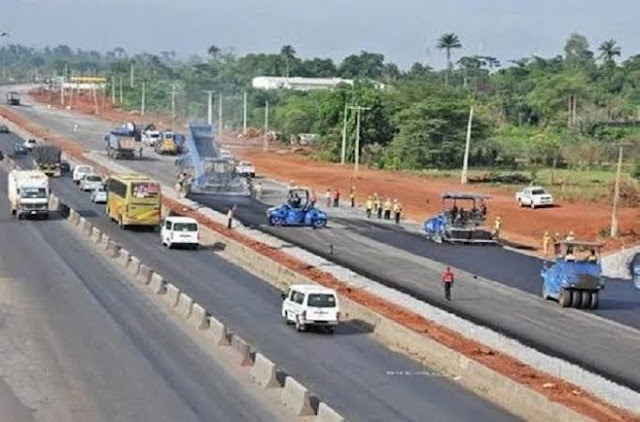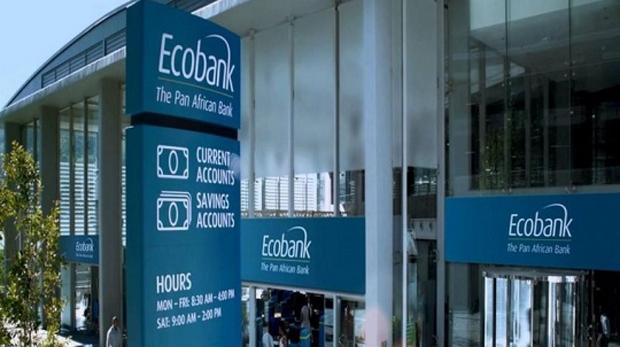In a remarkable demonstration of commitment to infrastructure development, the Ogun State Government, under the leadership of Governor Dapo Abiodun, has garnered widespread praise from traditional rulers, residents, and motorists for the ongoing reconstruction of the Abeokuta-Ifo-Sango-Ota-Lagos Expressway. This critical federal road, long neglected and notorious for its deplorable condition, is undergoing a transformative overhaul, with significant progress reported as the project nears completion. The initiative, launched on August 23, 2024, with an ambitious 18-month completion timeline, is not only restoring hope among commuters but also redefining the state’s infrastructure landscape. The Olu of Itori, Oba Abdul Fatai Akorede Akamo, alongside residents and transporters, has lauded the government’s efforts, highlighting the project’s profound impact on safety, economic activity, and quality of life in the region.
Background: A Road in Distress
The Abeokuta-Ifo-Sango-Ota-Lagos Expressway, a vital artery connecting Ogun and Lagos states, has long been a symbol of neglect and frustration for commuters. Spanning approximately 70 kilometers, this federal road serves as a critical link for industrial, commercial, and residential activities, facilitating the movement of goods, services, and people between Nigeria’s economic hub, Lagos, and the industrial and cultural heartland of Ogun State. However, for over 17 years, the road suffered from severe deterioration, characterized by potholes, craters, and poor drainage, which turned sections into virtual death traps. Commuters faced harrowing experiences, with journeys that should take an hour stretching into three or four hours due to traffic bottlenecks and frequent vehicle breakdowns. The road’s condition also contributed to numerous accidents, some fatal, and provided opportunities for criminal activities such as robbery and kidnapping.
The deplorable state of the road was a source of embarrassment not only for Ogun State but for the nation as a whole, given its strategic importance. Industries in areas like Ota, home to one of Nigeria’s largest industrial estates, faced significant challenges, with some multinational companies threatening to relocate due to the logistical difficulties caused by the road’s condition. Protests by residents, including a notable demonstration by the Nigeria Labour Congress and Ogun residents in 2021, underscored the urgency of addressing the issue, with demands for both federal and state governments to act decisively.
Previous attempts to rehabilitate the road, including a contract awarded to Julius Berger Plc in 1999 during former President Olusegun Obasanjo’s administration, were hampered by funding shortages and bureaucratic hurdles, leaving the project abandoned for years. The Federal Government’s inaction prompted Ogun State, in collaboration with Lagos State, to seek approval to take over the road’s reconstruction. Despite initial rejections, approval was finally secured in 2023, allowing Ogun State to spearhead the project. Governor Abiodun’s administration has since taken bold steps to address this longstanding issue, marking a turning point in the road’s history.
The Reconstruction Project: A Bold Commitment
The reconstruction of the Abeokuta-Ifo-Sango-Ota-Lagos Expressway is a flagship project of Governor Dapo Abiodun’s administration, reflecting his commitment to infrastructure development as a catalyst for economic growth and social well-being. Launched on August 23, 2024, the project is structured in five segments to ensure efficient execution: Tollgate to Singer, Singer to Ifo, Ifo to Papalanto, Papalanto to Itori, and Itori to Brewery in Abeokuta. This phased approach allows for simultaneous work across multiple sections, minimizing disruptions and accelerating progress.
Five construction gangs are currently deployed at key sections, including Olomore, Midgad/Metroxide, Papanlanto Junction, Owode, and the Toll Gate axis. Significant milestones have been achieved, with earthwork, stone base, and drainage systems completed in several areas, while asphalt laying is actively ongoing. Failed portions at Brewery, Obada, and Itori Junction up to the Lafarge Cement Factory in Ewekoro have been repaired and reopened to motorists, providing immediate relief to commuters. The project’s design incorporates modern drainage systems to address perennial flooding issues, which had previously exacerbated the road’s deterioration.
Governor Abiodun’s decision to take on this federal road, despite initial resistance from federal authorities, underscores his administration’s resolve to prioritize the needs of Ogun State’s residents. In collaboration with Lagos State Governor Babajide Sanwo-Olu, Abiodun navigated bureaucratic challenges to secure federal approval, a process that had been stalled under previous administrations. The governor’s proactive approach has been widely praised, with stakeholders noting his ability to deliver on promises where others had failed. The project is not only a testament to his leadership but also a reflection of the support he has received from President Bola Ahmed Tinubu, whom the Olu of Itori described as a “pillar of support” for the governor.
Voices of Commendation: Traditional Rulers and Residents Speak
The Olu of Itori, Oba Abdul Fatai Akorede Akamo, has been one of the most vocal supporters of the project, describing it as a “giant stride” that is “still unbelievable.” Speaking to journalists, the traditional ruler noted that the road had been abandoned for years, causing untold hardship for residents and motorists. He highlighted the significant reduction in accidents since the reconstruction began, attributing this to the improved road conditions. “I can testify that accidents have ceased to happen on this road because the Ogun State Government commenced reconstruction. From Itori to Papalanto, they are doing a fantastic job there, and I commend them,” he stated.
Oba Akamo’s remarks reflect the sentiments of many in the region, who view the project as a transformative intervention. He praised Governor Abiodun’s leadership, noting that he had never witnessed a governor in Ogun State who delivers on promises with such consistency. The traditional ruler also acknowledged the broader socio-economic benefits of the project, emphasizing its role in boosting connectivity and economic activities in the region.
Residents and commuters have echoed the Olu of Itori’s sentiments, expressing gratitude for the tangible improvements on the road. Opeyemi Akindele, a transporter who plies the Abeokuta-Papalanto route, commended the contractor for a job well done, noting that the reconstruction has eliminated traffic bottlenecks and reduced vehicle breakdowns. “Some portions of this road used to be like swimming pools, but the current government of Governor Dapo Abiodun has done very well by fixing this road,” he said. Akindele contrasted the current administration’s efforts with those of previous governors, who he claimed did little to address the road’s condition.
Another resident, Akande Michael, highlighted the ongoing changes, urging contractors to redouble their efforts to meet the 18-month timeline. “There are a lot of changes on this road, even though work is still ongoing. We are very happy and appreciate the Governor Dapo Abiodun-led administration,” he stated. Similarly, Ololade Anjolaoluwa, a resident of Papalanto, described the road’s previous state as “huge” in terms of traffic challenges, expressing relief at the administration’s intervention.
Broader Implications: Economic and Social Impact
The reconstruction of the Abeokuta-Ifo-Sango-Ota-Lagos Expressway holds far-reaching implications for Ogun State and the broader South-West region. Economically, the road is a lifeline for industries in areas like Ota, which hosts the Agbara Industrial Estate, one of Nigeria’s largest industrial hubs. The poor state of the road had previously led to delays in the movement of goods, threatening the viability of businesses and prompting some multinationals to consider relocating. The ongoing reconstruction is expected to boost economic activities by improving logistics and reducing travel times, thereby enhancing the competitiveness of industries in the region.
Socially, the project is improving the quality of life for residents by reducing travel times and enhancing safety. The reduction in accidents, as noted by the Olu of Itori and other stakeholders, is a significant milestone, given the road’s history of fatal crashes. For instance, accidents such as the one at Kere Bridge in February 2024, which claimed nine lives, underscored the urgency of the reconstruction. The improved road conditions are also expected to curb criminal activities, such as robberies, which had thrived in areas with failed road sections.
The project aligns with Governor Abiodun’s broader infrastructure agenda, which includes other key road projects such as the Atan-Lusada-Agbara Road and the Ijebu-Ode-Epe Expressway. These initiatives are part of a strategic effort to position Ogun State as a hub for industrial and economic growth, leveraging its proximity to Lagos. The reconstruction of the Sango-Abeokuta Expressway also complements the state’s urban renewal efforts, enhancing connectivity within and beyond Ogun State.
Challenges and the Path Forward
While the progress on the Sango-Abeokuta Expressway is commendable, the project is not without challenges. The scale of the reconstruction, coupled with the road’s strategic importance, requires significant financial and logistical resources. Previous attempts to rehabilitate the road were stalled by funding constraints, and the current administration must ensure sustained budgetary support to meet the 18-month timeline. Additionally, coordinating simultaneous work across five segments demands meticulous planning to avoid disruptions for commuters.
Another challenge is managing public expectations. While residents and stakeholders have expressed satisfaction with the pace of work, there is pressure to deliver the project on time without compromising quality. The call by residents like Akande Michael for contractors to “redouble their efforts” reflects the urgency of completing the project within the stipulated timeframe.
Looking ahead, the Ogun State Government must maintain its commitment to transparency and stakeholder engagement to ensure the project’s success. Regular updates on progress, as demonstrated by Governor Abiodun’s posts on X, will be critical in sustaining public trust. Additionally, the state must continue to collaborate with the Federal Government and Lagos State to address any jurisdictional or logistical challenges that may arise.
Conclusion
The ongoing reconstruction of the Abeokuta-Ifo-Sango-Ota-Lagos Expressway is a testament to the Ogun State Government’s dedication to transforming the lives of its residents. Under Governor Dapo Abiodun’s leadership, the project is addressing decades of neglect, restoring hope for commuters, and unlocking the economic potential of the region. The commendations from traditional rulers like the Olu of Itori and residents like Opeyemi Akindele and Akande Michael underscore the project’s transformative impact.
As the road nears completion, it stands as a symbol of what is possible when leadership, vision, and commitment converge. The project not only enhances connectivity but also reinforces Ogun State’s position as a key player in Nigeria’s economic landscape. With sustained effort and stakeholder support, the Sango-Abeokuta Expressway is poised to become a model of infrastructure excellence, delivering lasting benefits for generations to come.






